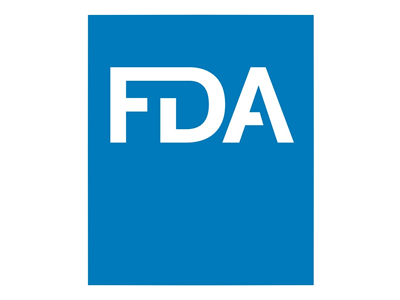FDA approves neoadjuvant/ adjuvant pembrolizumab for resectable non-small cell lung cancer

- Amanda Bridges
- October 17, 2023
- Drugs
On October 16, 2023, the Food and Drug Administration approved pembrolizumab (Keytruda, Merck) with platinum-containing chemotherapy as neoadjuvant treatment, and with continuation of single-agent pembrolizumab as post-surgical adjuvant treatment for resectable (tumors ≥4 cm or node positive) non-small cell lung cancer (NSCLC).
View full prescribing information for Keytruda.
Efficacy was evaluated in KEYNOTE-671 (NCT03425643), a multicenter, randomized, double-blind, placebo-controlled trial in 797 patients with previously untreated and resectable Stage II, IIIA, or IIIB (N2) NSCLC by AJCC 8th edition. Patients were randomized (1:1) to either pembrolizumab or placebo, with platinum-based chemotherapy, every 3 weeks for 4 cycles (neoadjuvant treatment) followed by either continued single-agent pembrolizumab or placebo, every 3 weeks for up to 13 cycles (adjuvant treatment). Chemotherapy details and surgical window are provided in the above drug label link.
The major efficacy outcome measures were overall survival (OS) and investigator-assessed event-free survival (EFS). Median OS was not reached in the pembrolizumab arm (95% CI: not estimable [NE], NE) and 52.4 months for those receiving placebo (95% CI: 45.7, NE) (hazard ratio [HR] 0.72 [95% CI: 0.56, 0.93]; p-value=0.0103). Median EFS was not reached in the pembrolizumab arm (95% CI: 34.1 months, NE) and 17 months in the placebo arm (95% CI: 14.3, 22.0) (HR 0.58 [95% CI: 0.46, 0.72]; p-value=<0.0001).
In KEYNOTE-671, the most common adverse reactions reported in ≥ 20% of patients were nausea, fatigue, neutropenia, anemia, constipation, decreased appetite, white blood cell count decreased, musculoskeletal pain, rash, cough, vomiting, diarrhea and dyspnea. Of the patients who received neoadjuvant treatment in the pembrolizumab arm, 6% were unable to receive surgery due to adverse reactions compared with 4.3% in the placebo arm. In addition, 3.1% of patients who received neoadjuvant treatment and surgery in the pembrolizumab arm had delays in surgery due to adverse reactions compared with 2.5% in the placebo arm. Details of the safety of the neoadjuvant and adjuvant phases are described in the above drug label link.
The recommended pembrolizumab dose is 200 mg every 3 weeks or 400 mg every 6 weeks. Administer pembrolizumab prior to chemotherapy when administered on the same day.
This review used the Assessment Aid, a voluntary submission from the applicant to facilitate the FDA’s assessment.
Healthcare professionals should report all serious adverse events suspected to be associated with the use of any medicine and device to FDA’s MedWatch Reporting System or by calling 1-800-FDA-1088.
For assistance with single-patient INDs for investigational oncology products, healthcare professionals may contact OCE’s Project Facilitate at 240-402-0004 or email OncProjectFacilitate@fda.hhs.gov.
Follow the Oncology Center of Excellence on X (formerly Twitter) @FDAOncologyExternal Link Disclaimer.

